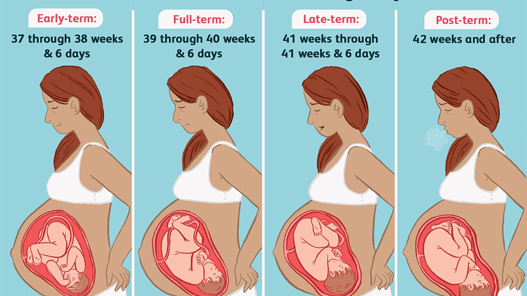Prolonged pregnancies; The role of the Mother, Father and Doctor
A prolonged (Post-term) pregnancy is one that has lasted at least 42 weeks (294 days) or estimated date of delivery (EDD) + 14 days (ACOG, 2004). In Nigeria, the incidence of prolonged pregnancy is quoted as 8%–10% of all pregnancies (Nyamzi, 2019).
Prolonged pregnancies are associated with an increased risk of fetal and neonatal mortality and morbidity (Olesen, 2003) as well as an increased maternal morbidity (Caughey, 2007).
source: Jaime, 2021
In pregnancy, the mother, father, and medical practitioner all play important roles as highlighted below:
The Doctor
The most common cause of prolonged pregnancies is inaccurate dating (Crowley, 2004).
The Mother
Maternal-related risk factors include primiparity (first pregnancy), previous post-term pregnancy, hormonal variables, and genetic predisposition (Galal, 2012).
It is unknown how body mass index (BMI) impacts pregnancy duration and delivery timing, however obese women have a higher frequency of post term pregnancy (Usha Kiran et al., 2005). Obese women may have an altered metabolic status, which can possibly affect the endocrine factors involved in the initiation of labor.
Genetic factors may be involved with prolonged pregnancy. Women who were themselves products of a prolonged pregnancy are at higher risk of post-term pregnancy (relative risk is 1.3) (Mogren et al., 1999).
The Father
There is also a paternal influence in the chance of recurrence of long-term pregnancy. When the father of the infant changed between the first and second pregnancy, the probability of recurrence of post-term pregnancy decreased from 19.9% to 15.4% (Olesen et al., 2003).
- Do you believe the mother or families attitude toward the pregnancy could also be a risk factor and why?
